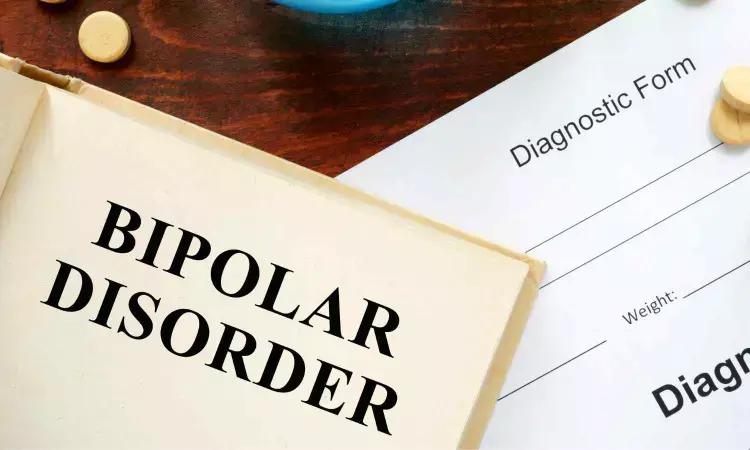Genetic Link Between Bipolar Disorder And Epilepsy Unveiled In Groundbreaking Study
- byDoctor News Daily Team
- 05 July, 2025
- 0 Comments
- 0 Mins

A team of researchers from the Chinese Academy of Sciences has uncovered compelling evidence of a genetic link between bipolar disorder type I (BD-I) and epilepsy, potentially revolutionizing our understanding of these complex neuropsychiatric conditions. The study, published in Genomic Psychiatry on September 30, 2024, reveals shared genetic variants and a causal relationship between the two disorders, opening new avenues for research and treatment.
Led by Dr. Ming Li from the Kunming Institute of Zoology, the study utilized genome-wide association study (GWAS) data from European populations, encompassing over 26,000 epilepsy cases and 25,000 BD-I cases, along with their respective controls. The researchers employed advanced statistical methods to uncover the genetic underpinnings shared by these seemingly distinct neurological conditions.
Key findings of the study include:
1. A significant positive genetic correlation (rg = 0.154) between BD-I and epilepsy
2. Identification of approximately 1,300 genetic variants influencing both conditions
3. Discovery of six independent genomic loci significantly linked to BD-I and epilepsy
4. A notable causal effect of epilepsy on BD-I (P = 0.0079)
Dr. Li explains, "Our findings provide a novel rethinking of the connection between epilepsy and bipolar disorder, which aligns with the clinical observation that mood stabilizers are effective in treating both illnesses."
One of the most intriguing discoveries is the role of the SP4 gene, which showed strong associations with both BD-I and epilepsy. The SP4 protein, modulated by neuronal activity, has been linked to mood disorder management through its stabilization by lithium, a common mood stabilizer. This connection raises an important question: Could the SP4 gene be a key target for developing more effective treatments for both bipolar disorder and epilepsy?
The study's implications extend beyond these two conditions. By demonstrating shared genetic underpinnings, it suggests that other neuropsychiatric disorders might have more in common than previously thought. This leads to an intriguing question: How might this genetic overlap inform our understanding of other brain disorders, such as schizophrenia or autism spectrum disorders?
Furthermore, the research highlights the potential for personalized medicine approaches. As Dr. Li notes, "Understanding the genetic basis of these disorders could lead to more targeted treatments based on an individual's genetic profile." This raises another critical question: How can we translate these genetic insights into practical, personalized treatment strategies for patients with BD-I or epilepsy?
The study also sheds light on the complex relationship between mood regulation and seizure activity in the brain. Given the shared genetic factors, researchers are now pondering: What specific neurobiological mechanisms link mood instability in bipolar disorder with the electrical disturbances seen in epilepsy?
While the findings are groundbreaking, the researchers acknowledge limitations, including the focus on European populations and the reliance on public GWAS data without sex-specific information. This opens up avenues for future research: How do these genetic associations manifest across different ethnic groups, and are there sex-specific genetic factors at play in the development of BD-I and epilepsy?
As the scientific community digests these findings, the potential for collaborative research across neurology and psychiatry becomes evident. Could this study catalyze a new era of interdisciplinary research aimed at understanding and treating complex brain disorders?
Disclaimer: This website is designed for healthcare professionals and serves solely for informational purposes.
The content provided should not be interpreted as medical advice, diagnosis, treatment recommendations, prescriptions, or endorsements of specific medical practices. It is not a replacement for professional medical consultation or the expertise of a licensed healthcare provider.
Given the ever-evolving nature of medical science, we strive to keep our information accurate and up to date. However, we do not guarantee the completeness or accuracy of the content.
If you come across any inconsistencies, please reach out to us at
admin@doctornewsdaily.com.
We do not support or endorse medical opinions, treatments, or recommendations that contradict the advice of qualified healthcare professionals.
By using this website, you agree to our
Terms of Use,
Privacy Policy, and
Advertisement Policy.
For further details, please review our
Full Disclaimer.
Tags:
Recent News
Pfizer files lawsuit against Metsera, its Director...
- 02 November, 2025
Health Ministry achieves 3 Guinness World Records...
- 02 November, 2025
Roche gets CE mark for Elecsys Dengue Ag test to d...
- 02 November, 2025
Aadhaar authentication voluntary for NBE exams, cl...
- 02 November, 2025
Daily Newsletter
Get all the top stories from Blogs to keep track.


0 Comments
Post a comment
No comments yet. Be the first to comment!